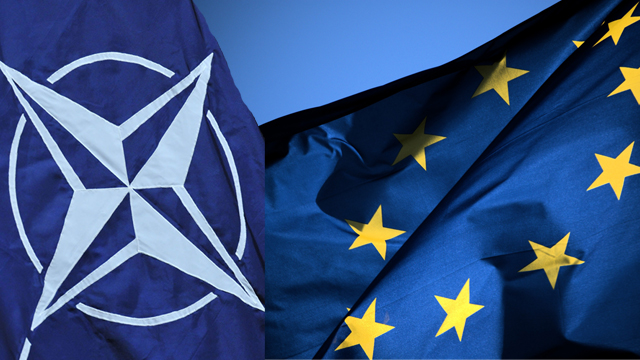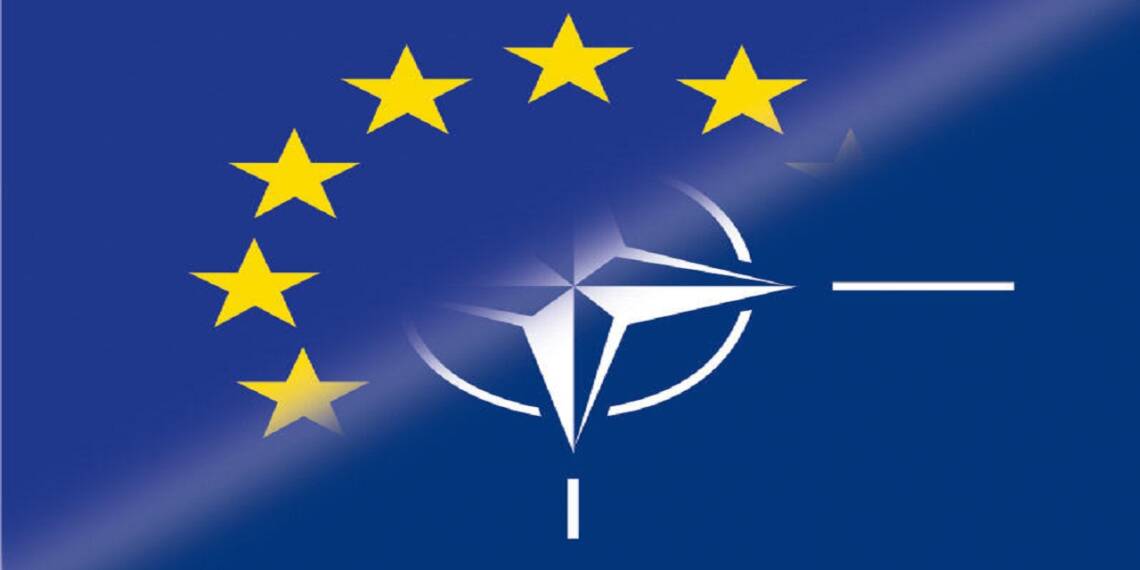In the wake of Russia’s invasion of Ukraine, European nations took an incomprehensible and foolish choice to openly declare that they will no longer trade with Russia. We’re calling it incomprehensible and foolish because these countries rely heavily on Russia for their oil and gas needs. However, these European nations soon realized their error and continued to trade with Russia, either directly or indirectly.
And now, when Ukraine is on the verge of losing the war, the US-led NATO is blaming European Union( EU) for this loss. Lately, NATO Secretary-General Jens Stoltenberg at the World Economic Forum, said that the western world must not trade security for trade.
He said, “We must recognize that our economic choices have consequences for our security. Freedom is more important than free trade, the protection of our values is more important than profit.”
The reliance on Russian gas and oil by the EU is huge
Nonetheless, Russian gas has been used to heat homes, power enterprises, cook food, and light streets throughout Germany for the past five decades, accounting for 41% of the EU’s natural gas imports in 2019. Germany has been one of the largest buyers of Russian gas in Europe. Given the EU’s massive reliance on Russian oil and gas, the EU agreed to continue trading with Russia by researching means to circumvent Russian sanctions. For example, a summit of EU nations was recently conducted with the goal of finding a solution to this situation so that EU importers can continue to acquire Russian gas without risking sanctions.
After this meeting, the EU commission told European governments that the gas companies could now open an account with Gazprom Bank. The account can be opened in dollars and euros. However, the guidelines didn’t mention whether opening the account in rubles was prohibited or not, leaving a window of opportunity for European gas importers to exploit this gap.

Read more: Qatar scraps its LNG deal with Germany at the last minute citing new conditions
EU found the ways to evade the sanctions
The EU, on the other hand, is divided on the subject. Some EU countries, including Germany, Hungary, and Slovakia, have agreed to pay for gas in euros through the Russian bank Gazprombank, which will then convert the funds into roubles. According to the Financial Times, gas companies in Austria and Italy are also considering opening accounts with Gazprombank.
Recently, the EU stated that if Russian gas purchasers could finalize payments in euros and receive confirmation before any rouble conversion, sanctions would not be broken.
Because the EU can deal with Russia indirectly, Stoltenberg cautioned the EU that this could jeopardize their security.
He even talked about how the trade with China for its 5G network could hamper the EU states’ national security.
“I am not arguing against trade with China, but I am saying that for instance, the control over 5G networks is of vital security importance,” he said.
“We cannot say that in the interest of profits and free trade we just open up those networks also for suppliers that actually are not reliable when it comes to our security,” Stoltenberg added.

“So this idea that we should have free trade in natural gas, meaning we can buy as much gas from Russia as we want, that’s wrong, it’s dangerous,” Stoltenberg warned.
Read more: Geopolitical genius Olaf Scholz now asks Russia’s best friends to help EU fight Russia
“It provides Russia with a tool to intimidate and to use against us, and that has been clearly demonstrated now, I regret to say.”
Mr. Stolenberg, on the other hand, must comprehend how these states would maintain national security unless they become economically strong and viable. In any case, increased oil and gas costs in the face of Russian sanctions would cause civil discontent in the individual countries, compromising national security indirectly. As a result, western nations should prioritize their economic interests, as this will only serve to strengthen national security.








